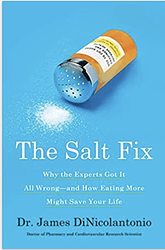Some background, I read a post about a year ago that someone cut out additional salting to foods and this eliminated the extra bloating etc. So I did the same, I cut out all added salt, in essence only eating the salt that comes naturally with food (eggs, steak, low carb veg like spinach, salad mix etc). I don’t eat any processed meats and also cut out any sauces with extra sodium.
In the context of trying to lose the last 3-4 lbs of actual fat (not water weight as I realize that’s a quick fix). I have 2 questions. I’m already quite lean, so this is really trying to fix the last of the body composition.
-
By cutting out all excess salt, am I actually doing myself a disservice and causing an appetite increase as my body looks to eat more food to get its salt requirements? (In essence am I eating more and I could lose weight faster if I added some salt?
-
If I add salt now, how can I avoid water weight gain. Seeing any increase in the scale even when I mentally know it’s water is triggering. (But on that question if salt intake increases will the water weight drop off or stay as long as the salt level is higher)? For example right now on average I have total of 1200 mg sodium per MyFitnessPal pal. I track everything very closely so this is very accurate. If I were to increase this to let’s say 1500 would the water weight only be a few days and then drop or would it stay higher so long as my intake of sodium remained higher)?
I eat strict keto. Average is 16 g total carbs. Macros usually are 60% fat; 36% protein 4% carb. I’m also trying to do a bit higher protein in light of my goals for body recomposition.


